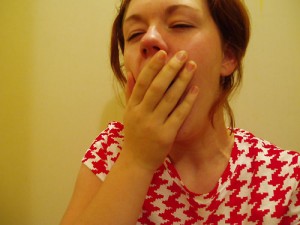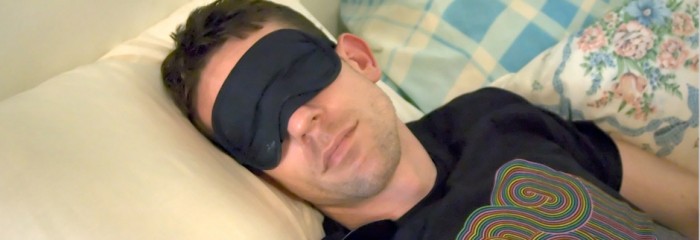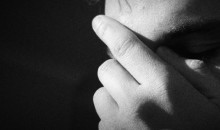There is nothing more difficult for any working person than not being able to sleep at night after a hard day’s work even if the body and mind are so craving for sleep. You probably thought that the stressful day at work had caused you not to be able to sleep at all. And the problem went on for about a week, where there were days that you had to stay home to try and recoup the lost energy due to lack of sleep. And you felt physically drained and exhausted. Bothered by this unusual situation, you finally decided to see your doctor to check what is wrong. And that is when you found out that you are already suffering from transient insomnia.
Insomnia is defined as the difficulty of being able to sleep or staying asleep. Insomnia is characterized not by the number of hours of sleep but by the quality of sleep and how one’s daytime functions are affected by the lack of quality sleep.
This is exactly what happened to you for the past week. You had trouble getting sleep which has affected your functions during the day, leaving you overly exhausted. And this is clearly a symptom of insomnia.
Your doctor did classify your insomnia as that of transient insomnia because it has been bothering you for at least a week already. If the symptoms will continue for another couple of weeks, it will be classified as short-term insomnia. Having the same symptoms for over three weeks will label it to chronic insomnia.
Your consultation with the doctor made you aware of the facts surrounding insomnia including the causes and treatment.
Causes of Insomnia
For transient and short-term insomnia, the following possible causes are identified:
- Abrupt change in time zones especially when travelling to countries with extremely different time zones. Jet lag is a common cause of one’s inability to sleep.
- Work shift being altered. This may cause confusion to the body clock. This may cause the brain to challenge the dictates of the body clock.
- Sleeping environment or conditions which are not conducive for sleeping like too hot or too cold room, too noisy environment, etc.
- Stressful events or situations like death of a loved one, bad news at work, family problems, etc.
- Alcohol- or drug-addiction related problems may also cause poor quality sleep especially if one is quitting from the addiction.
- Medical or psychological reasons like intolerable pain, respiratory problems, obesity, depression, severe anxiety or nervousness are possible causes of the inability to get sleep.
- Other sleep disorders like apnea, sleep walking, circadian sleep disorder, etc. may prevent someone from getting sleep
Insomnia Symptoms
The fact that different people have different sleeping habits, it makes it difficult to pinpoint any defined measure for the lack of sleep to be classified as insomnia. There are, however, signs and symptoms which may be observed from people suffering from insomnia:
- Frequent waking hours at night for no apparent reason and finding it difficult to resume sleeping every time.
- Daytime problems start to manifest :Lack of focus and concentration, memory lapses, uncoordinated actions, feeling irritability, and failed social interaction
If you are experiencing any of these symptoms, you may need to consult with your doctor to confirm if your symptoms are that of insomnia or something else. Most of the time, people do experience those symptoms but due to lack of information about insomnia never bother to have the symptoms checked. When this happens, the symptoms may have led to serious chronic insomnia which will be very inconvenient and will impact one’s well being.
Insomnia Treatment

Photo by: Racchell
The treatment for your transient insomnia will be removing or resolving what is causing the sleep disruption. The treatment is usually directed towards identifying the cause and addressing those causes. For transient insomnia, for instance, allowing yourself to get used to the new work schedule and conditioning your mind and body on the time zone changes will help the body and brain to understand the modification it needs to do with the person’s body clock. Unless your insomnia is classified as chronic insomnia and is affected by existing medical or psychological conditions, non-medical treatment methods may be tried.
Sleep hygiene is a component of behavioural therapy where an insomniac is advised to :
- Have enough sleep to have the feeling of being rested. Oversleeping needs to be avoided.
- Regular short-duration exercises about 4-5 hours before bedtime.
- Do not force yourself to sleep which will cause unnecessary stress.
- Maintain a regular sleeping and waking up schedule.
- Avoid caffeinated beverages especially in the afternoon or hours before bedtime.
- Avoid sleeping with an empty stomach.
- Make your sleeping environment comfortable and avoid of noise or distractions.
- Do not sleep with an unresolved problem as this may cause disruption in your sleep.
Relaxation therapy will help the body and mind to relax. Soothing or calming music, warm cozy lights in the bedroom, meditation or yoga exercises will invite your senses to sleep in a relaxed mode.
Sometimes a simple change in lifestyle will make a difference in preventing insomnia from worsening. By keeping a healthy lifestyle and avoiding stress triggers, one will be able to ward off the sleeping problem.











